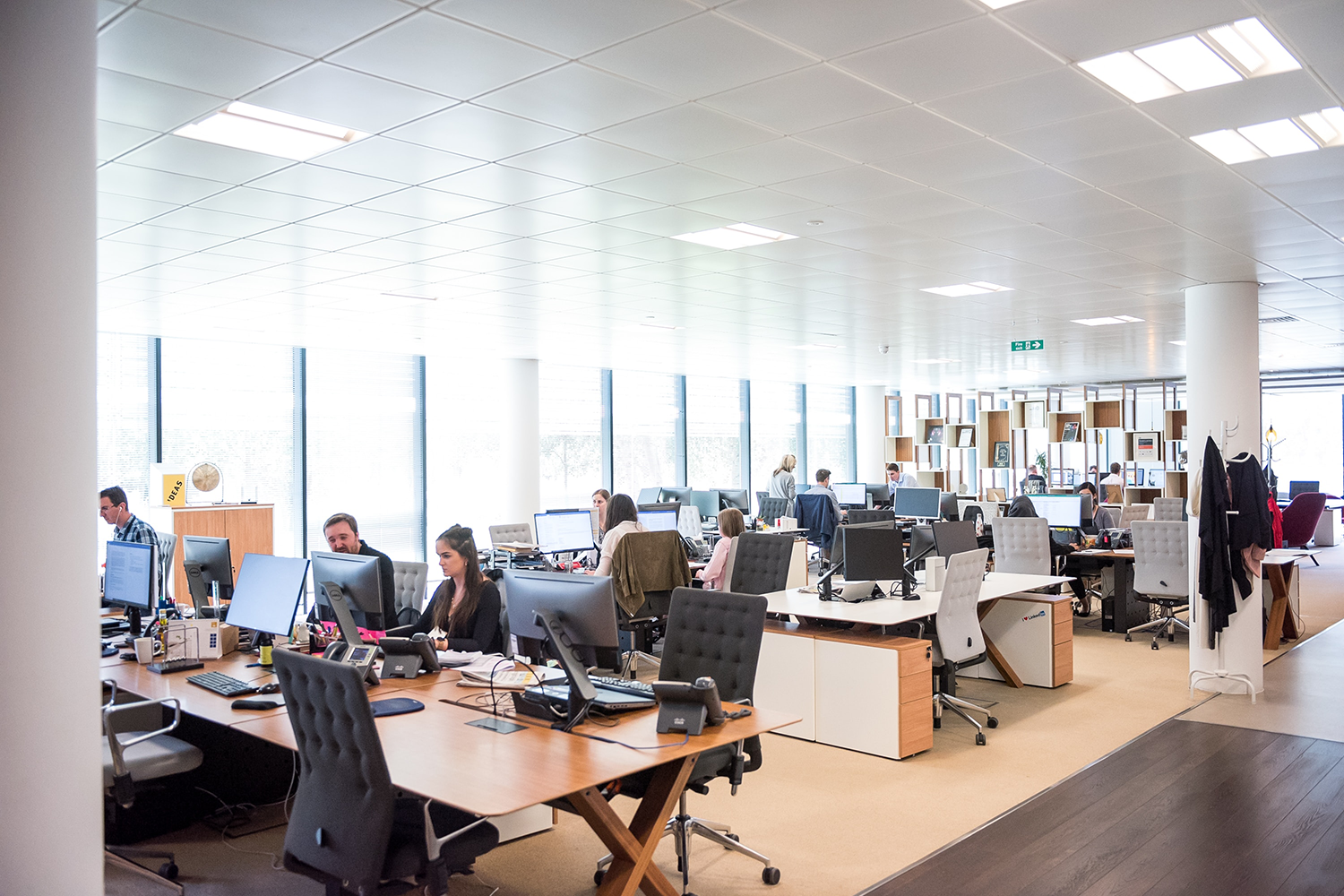
2024 Workforce Trends & Their Business Impact
Workforce trends have shifted dramatically over the past several years, and more changes are coming.
Organizations will have to adapt to a younger workforce in 2024, improve discontentment among employees, build trust with leadership, and navigate more complex working environments.
But among these difficult tasks are opportunities for organizations to create workplaces where employees feel welcomed, valued, and optimistic about their work. Here are a handful of trends organizations should prepare for.
1. The workforce is getting younger
In 2024, there will be a significant shift in workforce demographics, with Gen Z workers (ages 26 and younger) in full-time positions surpassing Baby Boomers for the first time, according to a Glassdoor workforce trend report.
Understanding this generation’s preferences and work styles will be increasingly crucial for workplaces. Gen Z’s digital-first approach to work and desire to spend time building things that align with their purposes means that companies must stay agile and relevant in their workplace hiring.
For companies keen on attracting top talent in 2024, aligning strategies to resonate with Gen Z’s aspirations will be pivotal in securing a competitive edge in recruitment and fostering a vibrant, future-ready workforce.
2. There’s an increased focus on return to office
In its workforce trends report, Glassdoor says that companies must navigate the difficult task of convincing some remote workers to come back into the office without scaring away valuable talent.
Doing so will involve a mix of in-person work requirements — including a hybrid work model — and enticing employees to spend more time in the office through incentives, social events, and other perks. Companies will have to craft strategies that entice employees without invoking apprehension.
A recent Gallup poll shows that the average American employee works 3.8 days from home per month. Companies and managers will struggle to lure workers back, as 73% of Americans believe remote work is just as productive or more productive than working in the office.
3. Layoffs will lead to lower morale
In the wake of the layoffs that ripped through many industries in 2023, the repercussions will continue into 2024, impacting employee morale. The residual effects of downsizing leave those remaining to navigate a landscape of uncertainty and heightened stress.
Worker opinions about career opportunities and the business’ outlook fall sharply after layoffs and take the longest to rebound. Glassdoor says that overall employee satisfaction ratings fall for up to 180 days after a layoff.
The aftershocks of witnessing colleagues depart and shouldering increased workloads will take a toll on morale. Still, companies can help offset this workforce trend in 2024 by doubling down on transparent communication and support networks and prioritizing mental health resources.
4. Managers will be more stressed
A Gallup workplace survey found that managers feel squeezed and don’t believe their company will support them. Just 22% of managers said that their organizations care about their well-being, a massive decline from 47% in 2020.
The multifaceted challenges of navigating remote work transitions, maintaining team cohesion, and meeting ever-increasing demands while contending with reduced resources have placed an immense burden on managers.
The strain of balancing productivity, employee well-being, and shifting priorities has created a pressure cooker environment, risking burnout and diminished effectiveness. This heightened stress among managers could trickle down, impacting team morale, decision-making, and overall productivity.
5. Leadership trust is on the rise
The turbulence of recent years, from layoffs to rapid shifts in work environments, has left employees grappling with uncertainty, fostering a sense of skepticism towards leadership intentions and decisions.
Just 23% of employees say they trust their organization’s leadership. And while this percentage is low, it’s trending up compared to the 20% of employees who said they trusted company leadership in 2022.
To rebuild trust and make it even more robust, leaders must openly address concerns, share authentic narratives, and actively listen to employee feedback. Gallup found that when leadership communicates clearly, leads others well into significant changes, and stays optimistic about the future, trust in leadership jumps to 95%.
Choose Veriswift to build a strong workforce
At Veriswift, we understand how critical it is to make quality hires swiftly and seamlessly to accommodate shifting workforce trends. Our cutting-edge background check solutions are designed to elevate your hiring process while ensuring top-notch talent acquisition.
With our robust screening processes, we provide thorough evaluations that deliver peace of mind, enabling you to onboard the right candidates efficiently.
But it’s not just about the background check — it’s about enhancing the candidate’s experience. Our user-friendly platform streamlines the entire process, ensuring a hassle-free journey for you and your potential hires.
Ready to elevate your hiring game with Veriswift? Contact us today to see how Veriswift can revolutionize your hiring process, ensuring you bring in the best talent quickly and efficiently.



